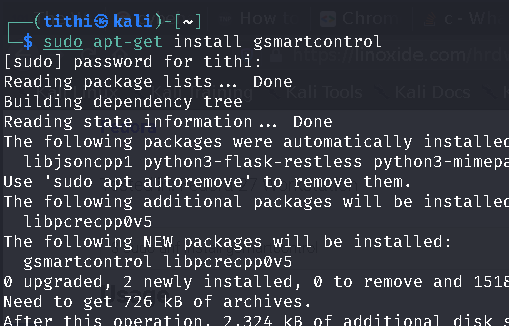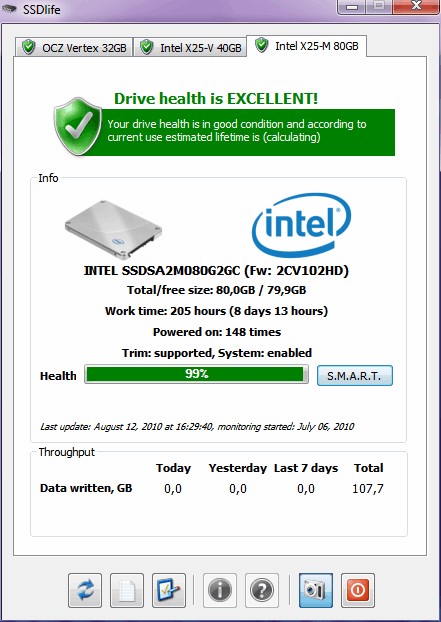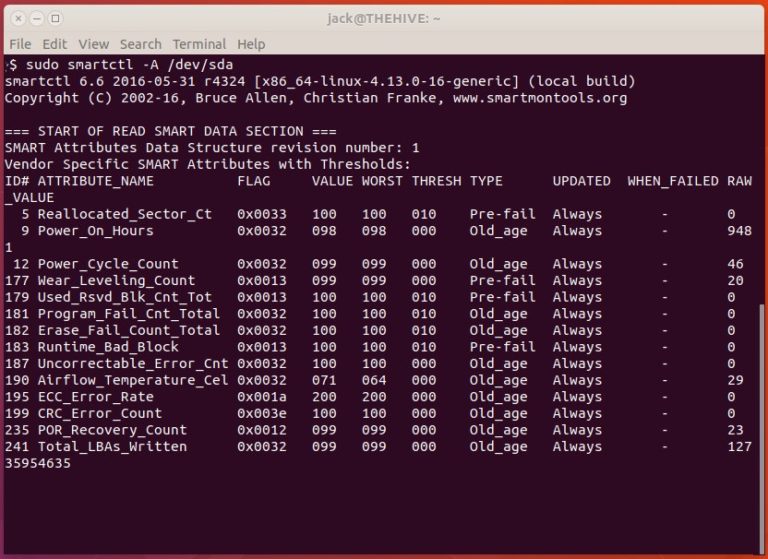

- #Linux ssd health serial number
- #Linux ssd health software
- #Linux ssd health download
- #Linux ssd health windows
Note that the spaces in hard disk model ID and serial number are replaced with underscore (_). Hdsentinel -solid | awk '' | grep -v "^?" | sort -n List disk drives, temperature (in Celsius), health %, power on hours, disk model, disk serial, size: dev/sda) to drive indexes.ĭue to the high amount of requests, it is possible to create minimal output which can be easily parsed and processed for further use. Please start hsentinel without parameters to see drive assignments (eg. Note: some disks do not support balanced settings and they may select the most silent (80) or high Select a balanced level between silence and performance on drive 0: hdsentinel -setaam 0 C0 Optimize complete system for high performance (but louder disk access): hdsentinel -setaam all loud Optimize complete system for silence: hdsentinel -setaam all quiet Sudo is not required if you logged in as "root".

#Linux ssd health windows
However, if you like this tool and would like to keep it updated, please support further development by registering the Windows version of the software. You can freely distribute and use it to analyse hard disk status. Hard Disk Sentinel Linux edition is FREE. Please send saved XML or TXT reports, questions or ideas to to help improving this tool. -setaam drive_num|ALL level(hex)80-FE|QUIET|LOUD - set acoustic level on drive 0.n (or all)Ĩ0 or QUIET is the lowest (most silent) setting, FE or LOUD is the highest (fastest) settingįor example: hdsentinel -setaam 0 loud - Configures drive 0 to fastest (loud) setting.-aam - display acoustic management settings (current and recommended level).-verbose - detailed detection information and save temporary files (only for debug purposes).-solid - solid output (drive, tempC, health%, power on hours, model, S/N, size).-xml - create and save XML report instead of TXT.-dump - dump report to stdout (can be used with -xml to dump XML output instead of text).-dev /dev/sdX - detect and report only the specified device without accessing others.-autosd - detect industrial SD card type and save flag file (see How to: monitor (micro) SD card health and status for more details).-mht - use with -r to save MHT format report (-mht -r report.mht).-html - use with -r to save HTML format report (-html -r report.html).-r - automatically save report to filename (default: report.txt).-h - displays help and usage information.Upper and lower case can be used to specify them. acoustic management settings (if supported and -aam or -setaam option is used.

Note: this is for informational purposes only, the value displayed under Windows (after some minutes of testing) may be more accurate power on time (days, hour, minutes - if supported).

temperature, health and performance values.size, model ID, serial number, revision and interface of all detected hard disks.detected hard disk number and device name (for example /dev/sda).offers outputs for both users and scripts/other applications to process.display and manage acoustic setting of hard disks (on supported USB disks also).create comprehensive report about the disk system, including both hard disk and SSD specific features (for example, media rotation rate, TRIM command, etc.).display hard disk / solid state disk information on the terminal.Thanks for Raul del Cid Lopez for this script! To receive daily status reports, please check the HDSentinel_EmailUtil.zip package. Thanks for Marc Sayer for these packages! To simplify starting Hard Disk Sentinel Linux Edition, it is possible to use one of the Linux Desktop Installers for the actual Linux distribution which allows starting directly from the desktop without the need of starting manually from a console.
#Linux ssd health download
To display hard disk / SSD status in a graphical interface, download Hard Disk Sentinel Linux GUI (Graphical User Interface) package.
#Linux ssd health software
The user must be root to use this software or start it with sudo. By using Hard Disk Sentinel Linux console edition, it is possible to examine the temperature and health information (and more) of IDE, S-ATA (SATA II also), SCSI and USB hard disks connected to motherboard or external controller cards.


 0 kommentar(er)
0 kommentar(er)
